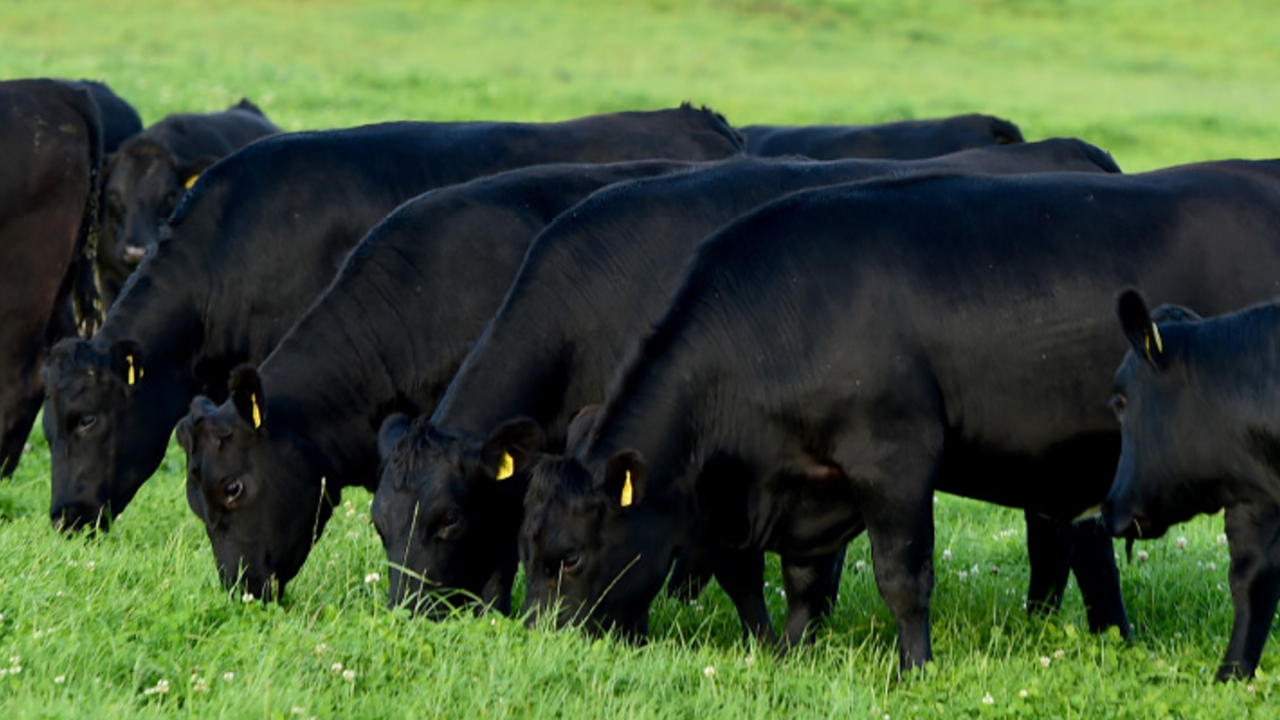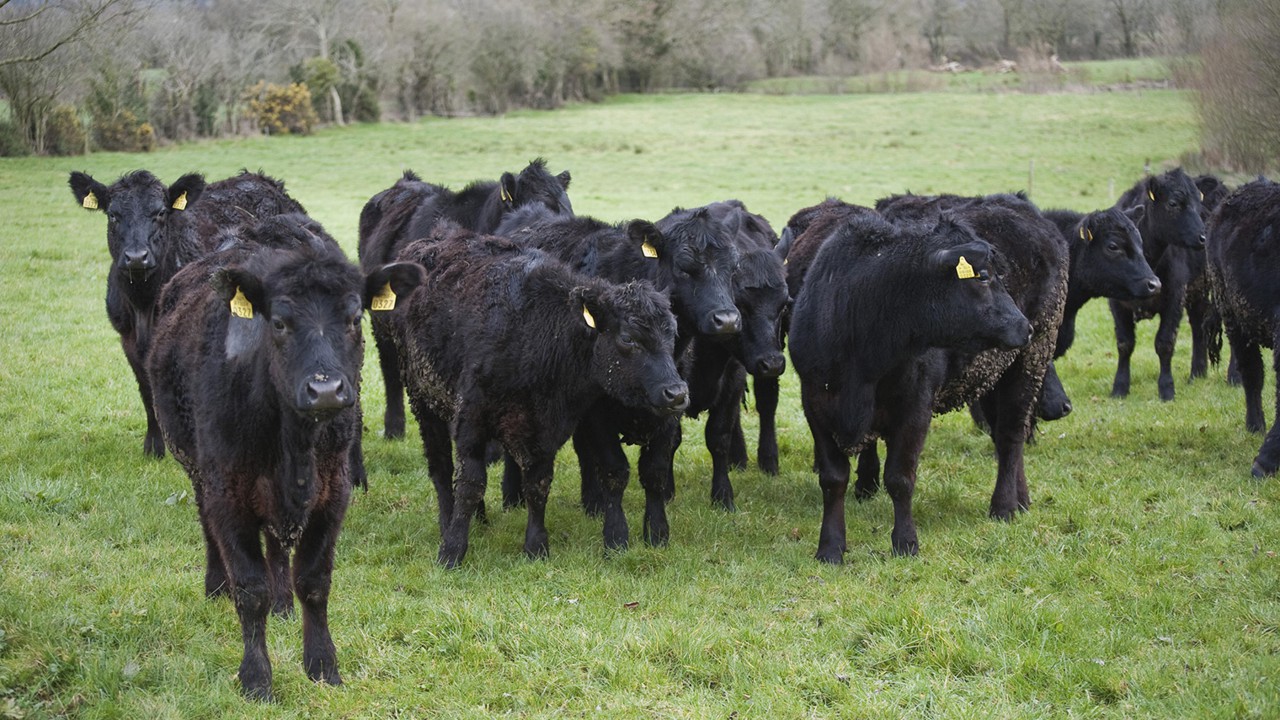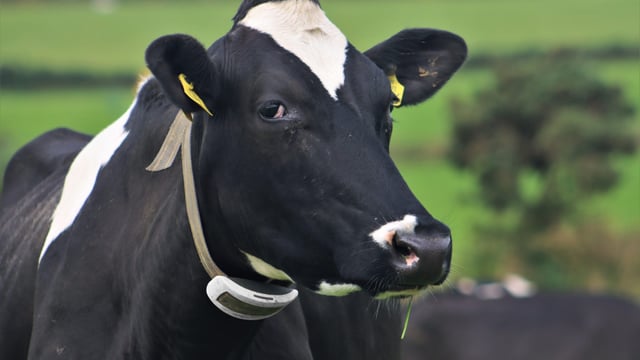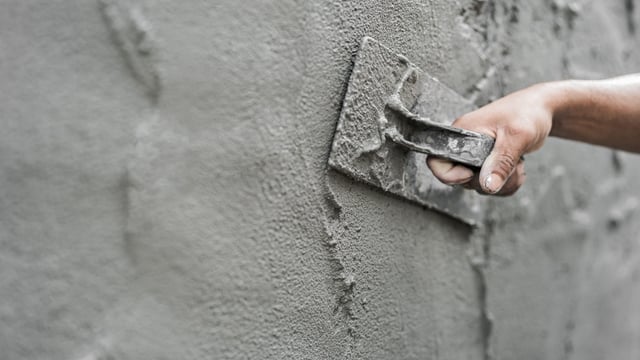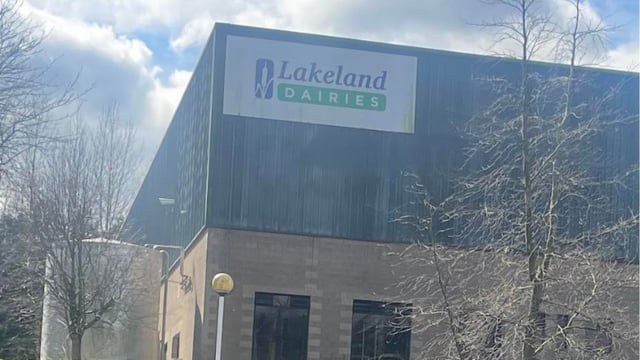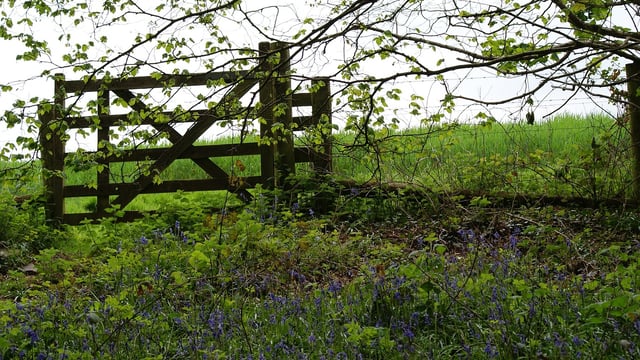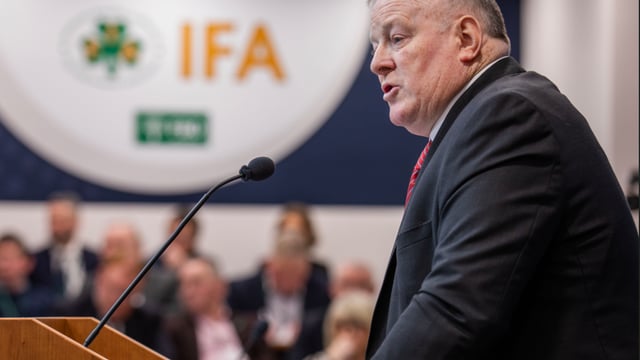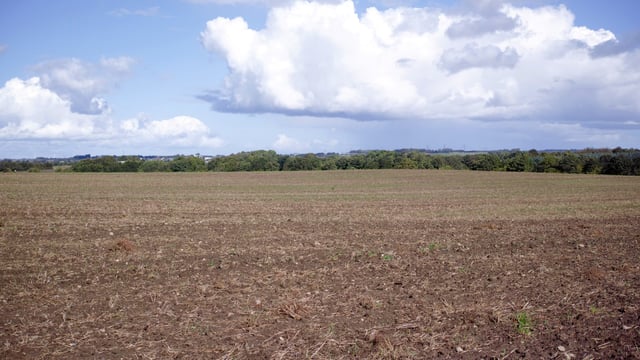Teagasc may breed 180 elite, high genetic merit Angus calves yearly
Teagasc said that it is currently considering establishing a "nucleus herd breeding programme" in a bid to double the rate of gain in the Dairy Beef Index (DBI).
The initiative which aims to accelerate genetic gain in beef bulls used on the dairy herd is being evaluated by Teagasc "pending stakeholder discussions and support".
Teagasc said that the establishment of this nucleus herd breeding programme would involve an investment of around €300,000 on an annual basis.
According to the authority, there would be a return to the beef and dairy industry of around €6 million per year.
Teagasc
The Dairy-Beef Index (DBI), developed by Teagasc and the Irish Cattle Breeding Federation (ICBF), ranks beef bulls for use on dairy females based on their estimated genetic potential to produce high quality profitable cattle, with minimal impact on dairy cow performance.
However, Teagasc said that "to date, an active breeding programme designed to maximise genetic gain within the DBI has been lacking".
The Department of Agriculture, Food and the Marine (DAFM) Dairy Calf to Beef Ten-Point Action Plan called for strategies to accelerate the rate of genetic progress within the DBI.
Teagasc commissioned AbacusBio to assess the current level of genetic progress in beef bulls being used on the Irish dairy herd.
The study also sought to quantify the potential genetic progress along with the economic costs and benefits of a range of breeding strategies to increase genetic gain within the Angus breed.
The project built on the insights from a 2021 report carried out by AbacusBio for the National Cattle Breeding Centre (NCBC).
The Aberdeen Angus breed was selected as it accounts for the greatest number of beef calf birth registrations from the Irish dairy herd, with an estimate that approximately 50% of these births are from artificial insemination (AI).
"The Angus breed exhibits significant variation in carcass and calving traits, which can be harnessed to accelerate genetic improvement," Teagasc said.
The AbacusBio report stated that a nucleus herd breeding programme and implementing assisted reproductive technologies was the strategy that generated the most significant increase in genetic gain.
The rate of genetic gain in DBI could be almost doubled in the Angus breed, relative to the status quo by implementing this strategy, according to Teagasc.
The proposal outlined in the report, which is being considered by Teagasc, is to establish a breeding programme that produces 180 elite, high genetic merit DBI Angus calves annually.
"The calves will be generated from the best Angus females using a combination of Multiple Ovulation and Embryo Transfer (MOET) and In Vitro Embryo Production (IVP).
"Semen of elite bulls will be sourced nationally and internationally to complement donor dams to generate embryos.
"Dairy cow dams in multiple Teagasc and commercial herds will be used as recipients to provide a surrogate pregnancy service," Teagasc said.
Breeding programme
Teagasc added that each year the best genetic and phenotypic performing bulls generated by the nucleus herd will be made available and will be "targeted towards Irish AI and pedigree breeding programmes".
Teagasc said that the "expected benefits" to Irish farmers from this breeding programme include:
- Higher DBI bulls available, facilitating increased profitability for beef and dairy farmers;
- Faster genetic improvement in beef bulls used on dairy cows, increasing the economic value of their calves;
- More consistent, high-quality dairy-beef animals that meet processor and market requirements;
- Reduced finishing age while meeting carcass market requirements;
- Reduced carbon footprint of beef production through improved growth, feed efficiency and methane emission reductions;
- Provision of high merit sires to the Irish national Angus breeding programme;
- Blueprint for breeding programmes of accelerated genetic gain for all cattle breeds.
Teagasc has acknowledged that "for this programme to be successful it will require strong support from the Aberdeen Angus breeders in Ireland".
"Preliminary briefings on the initiative with the Irish Aberdeen Angus Association have taken place, while further discussion with interested stakeholders will take place over the next period of time," it said.
Teagasc said that it has already had discussions with some breed societies, and these will be expanded as it develops a proposal to increase the rate of genetic gain in the DBI.
"Early in March, Teagasc staff met with representatives of one of the Angus societies and engaged with them on the detail of the project.
"Another Angus breed society [has] been invited to visit Teagasc and engage with the project team. It’s hoped that this offer will be taken up and that this meeting will take place later this month.
"The society representing another breed [has] expressed interest in the project, and a meeting between Teagasc and their representatives is expected to take place this week," Teagasc said.
Pedigree breeders
The Pedigree Breeders Council of Ireland has said that it is "outraged" that "Teagasc’s programme of implanting pedigree embryos into dairy cows to produce AI bulls is set to continue".
The council is calling an immediate halt to state funding for this project, which it believes will have a total cost of around €3 million.
The council pointed to the 30-page report by AbacusBio outlining different models to achieve genetic gain for dairy-beef systems.
"It’s clear from reading the report that the best way to benefit all parties is to double the amount of bulls performance tested in the country. This would see genetic gain increase by over 50%.
"If the performance testing allowed for all AI companies and societies to participate fully, further increased genetic gain could be achieved," the council said.
The council has also questioned why there are no strides in genetic gain from AI bulls in dairy-beef systems.
"Is it because some AI centres focused heavily on single trait selection to achieve greater monetary income?" the council claimed.
The council said that "the nucleus herd working on high DBI bulls makes a mockery of pedigree breeders and shows just how out of touch Teagasc is with the farmers on the ground".
"Is the real purpose of this work long-term to eliminate the suckler farmer in Ireland?
"If beef embryos can be harvested from yearling heifers prior to slaughter and the embryos subsequently put into dairy cows, then maybe Ireland only needs calf rearers instead of pedigree and suckler famers?" the council asked.

